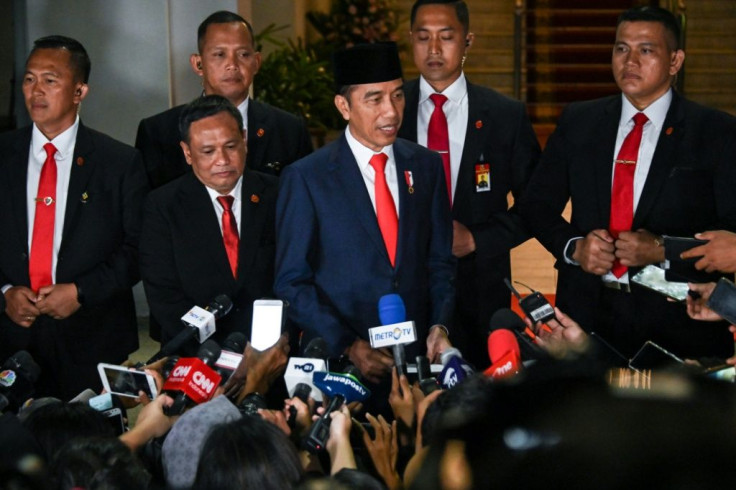Indonesia Plans $40 Billion Railway Upgrade As China And Japan Battle For Economic Domination In Region

Indonesia is planning to spend $40 billion to upgrade and expand the metro train network of its capital Jakarta as part of President Joko Widodo’s ambitious plan to ease congestion, modernize infrastructure and create a $7 trillion economy by 2045 (from $1 trillion in 2018).
Widodo expects to spend a total of $455 billion on various infrastructure projects -- including construction of new ports, dams and power plants -- over the next five years.
With respect to the $40 billion rail project, Jakarta Mass Rapid Transit, the operator of the metro railway, is currently choosing partners to help finance the expansion.
“We have a target of building [143 miles] by 2030; that’s the masterplan,” William Sabandar, president and director of Jakarta Mass Rapid Transit, said late last week. “We only have [10 miles] right now, so the key is how we can do this in an accelerated way. We can no longer just build them one by one.”
Sabandar told McKinsey & Co., the management consulting firm, that for the first phase of this project, his agency secured a loan from the Japan International Cooperation Agency of $1.2 billion. “So it’s a long-term commitment between the government of Indonesia and the government of Japan,” he said. “The second phase, which we hope to complete in 2024, will continue [5.1 miles] north from Bundaran Hotel Indonesia to Kota Tua [in Jakarta] -- that is also financed through [Japan International Cooperation Agency]. We will likely need [$1.6 billion] to finance phase two.”
The third phase, Sabandar added, is the east–west rail, which will run 19.3 miles from the cities of Kalideres to Ujung Menteng.
“We may work with [Japan International Cooperation Agency] again but we’re also looking into other innovative financing mechanisms, such as public–private partnerships,” he said. “If those are successful, they could form a model for future phases.”
Sabandar noted the Asian Development Bank, Asian Infrastructure Investment Bank have also expressed interest in funding the railway expansion.
However, Widodo’s overarching strategy has placed a burden on the nation’s banks and on state-owned construction firms. Consequently, said Yayat Supriatna, a transportation analyst at Trisakti University in Jakarta, Indonesia will continue to need funding from other countries – specifically Asian rivals China and Japan, who have aggressively competed for infrastructure contracts across Asia.
“We have to acknowledge that Indonesia doesn’t have the technical capabilities and the financial resources for this,” Supriatna said.
Supriatna added that with Japan and China competing against each other, “we can make sure that we can pick the offer that gives us the best benefit.”
In September of this year, Indonesia signed a $4.3 billion agreement with Japan International Cooperation Agency, a unit of the Japanese government, to construct a railway line between the capital Jakarta and Surabaya, the country’s second largest city more than 400 miles to the east.
Widodo said he expected construction of this railway to begin next year.
In 2015, Indonesia awarded a $6 billion contract to China Railway International Co. and a consortium of Indonesian state firms to construct an 88-mile high-speed railway line from Jakarta to Bandung, the capital of West Java. That project has been repeatedly stalled and postponed by failure to acquire land from local property-owners, bureaucratic obstacles, among other woes.
West Java Gov. Ridwan Kamil said in mid-November that with about 99% the land compensation settled, the project is slated to operate by 2021.
However, some in Indonesia are wary of doing business with China.
Indonesia’s anti-corruption agency, the Corruption Eradication Commission, has issued a warning not only about Chinese business practices but also about Beijing’s deepening influence on the Indonesian economy.
“We are advising the government to be more careful with investment from China,” Commission deputy chairman Laode Muhammad Syarif said. “They [China] are doing it as a part of their business, trying to expand their economic influence, so that’s why we have to be very, very careful.”
In 2018, bilateral trade between the countries soared by 22% to $72.3 billion in just one year.
© Copyright IBTimes 2024. All rights reserved.




















